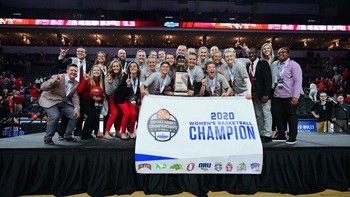Diversifying the Public Health Workforce and Solving Health Care Inequities
The Institute for Public Health defines health inequalities as follows: “Health inequalities are preventable and unjust differences in health status experienced by certain population groups. People in lower socio-economic groups are more likely to experience chronic ill health and die earlier than those who are more advantaged. Health inequalities are not only apparent between people of different socio-economic groups, they exist between different genders and different ethnic groups. Health inequalities are often observed along a social gradient. This means that the more favorable your social circumstances such as income or education, the better your chance of enjoying good health and a longer life. While there is a significant gap between the wealthy and the poor, the relationship between social circumstances in health is in fact a graded one.”
RISE-UP combats health care inequalities and disparities by encouraging members of population groups afflicted by these problems to become health care professionals. Specifically, the program offers meaningful internships to talented young men and women who have an association to geographic areas and demographics experiencing health access and health equity problems. It is more likely that those who are members of a demographic group or who are native to a certain locale will return to serve their communities or will focus their energies to serve those in their demographic.
RISE-UP was launched in 2012 with funding by the federal Centers for Disease Control and Prevention. Three sites comprise the national consortium that triggers participation and sponsors activities. The University of South Dakota’s role is boosted by a relationship with Sanford Research. The Kennedy Krieger Institute, in Baltimore, Md., works with the Johns Hopkins School of Medicine and several other health care departments in that university, and the University of Southern California leads efforts in the western United States, with assistance from California State University, Los Angeles, and the Children’s Hospital of Los Angeles. The Kennedy Krieger Institute disburses funds to partner institutions to facilitate the RISE-UP programs located around the country.
With significant pockets of rural and urban poverty, new ethnic concentrations in Sioux Falls, long spaces separating people from doctors and other health care providers, and with so many Native Americans living on remote reservations where access to health care is difficult or distant, South Dakota’s citizens appreciate the need that many in their state have regarding access to quality health care.
We also understand that obstacles to health care in our state translate into greater individual and community health problems. Simply put, we need additional health care providers, particularly in locations that are unserved or underserved.
The USD Center for Disabilities and its RISE-UP program works with its partners to encourage young people in minority ethnic groups to pursue careers in health care, especially public health aspects of health care. Key local partners with the Center for Disabilities are Native American tribes and colleges in the region.
RISE-UP’s reputation is deservedly growing.
Tyler Hemmingson is the Center for Disabilities’ site coordinator for the RISE-UP program. “The most important thing we do,” he explained, “is to provide a meaningful and exciting opportunity for young women and men to become so passionately interested in public health occupations and matters that they want to make a difference. Then we encourage them to gain skills and knowledge so they can fulfill that passion.”
Under Hemmingson’s guidance the RISE-UP program at USD has flourished, attracting increasing interest in each of the program’s first four years of existence. In 2012 there were 18 eligible applicants, and eight internships were awarded. The following year 31 eligible applicants competed for eight spots. The eligible applicant pool increased to 45 and 65 for 2014 and 2015 respectively, with 10 internships awarded in each of those years.
That is the same level of success happening nationally.
Dr. Harolyn Belcher, an associate professor of pediatrics at Johns Hopkins School of Medicine and director of research for the Center for Child and Family Traumatic Stress at the Kennedy Krieger Institute, wrote the original grant creating RISE-UP, and she has been the program’s national director since it launched in 2012.
According to Belcher, in 2012, 289 eligible applicants competed for 40 internships. In 2013, the eligible applicant pool jumped to 399, and 44 internships were awarded. The following year, 2014, 643 eligible applicants competed for 40 internships. This year eligible applicant numbers exploded to 903, and 36 students will benefit with a 10-week internship.
The increasingly competitive nature of the internships directly reflects the growing reputation and stature of the program. “Word is spreading that RISE-UP is a terrific program that dramatically benefits those who participate in it,” said Hemmingson.
The University of South Dakota’s involvement in this national consortium, explained Belcher, came about from a diversity training meeting she attended in Baltimore, Md.
“During that meeting I had the good fortune to be sitting at a table with several University of South Dakota Sanford School of Medicine faculty,” she said. “Those faculty members spoke with such passion about programs at their university that worked with American Indian scholars and American Indian health. When we established RISE-UP it was a natural fit for them to be a partner in the endeavor.”
“This program is making a big difference in the lives of real people,” Hemmingson noted. “Not only are those who participate in the internships benefitting, but so are communities and areas where there is a need for well-prepared and highly devoted public health professionals.”


